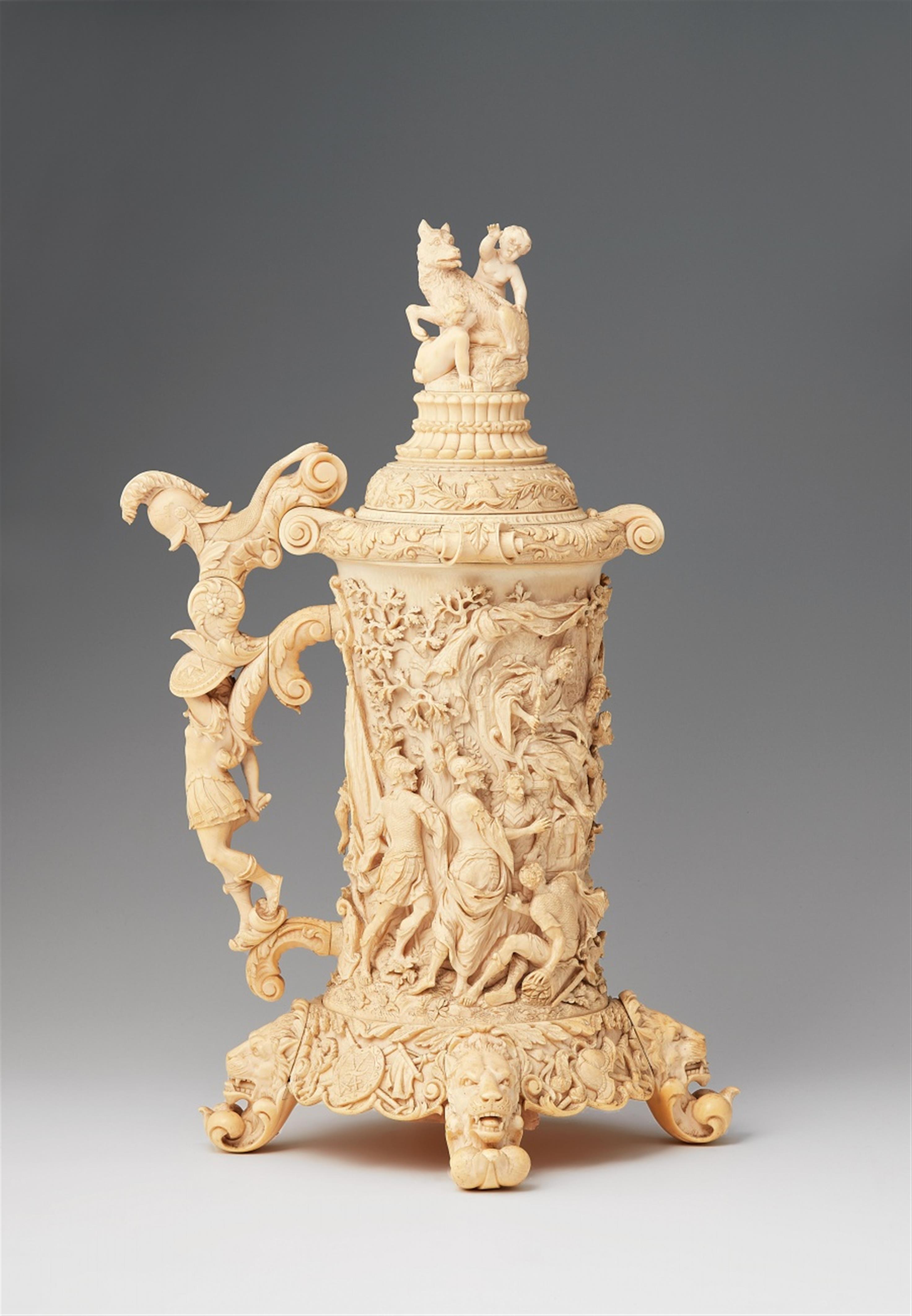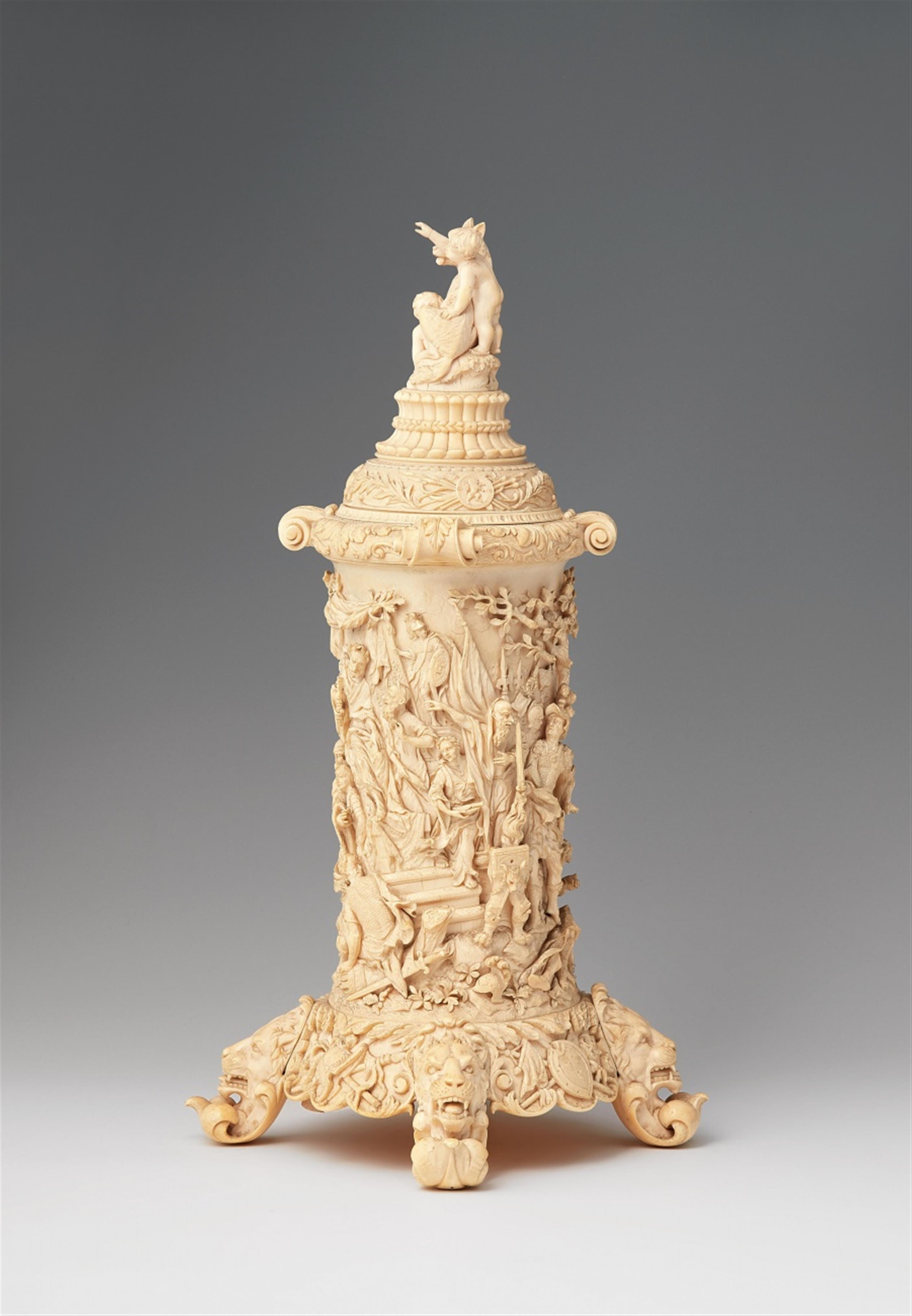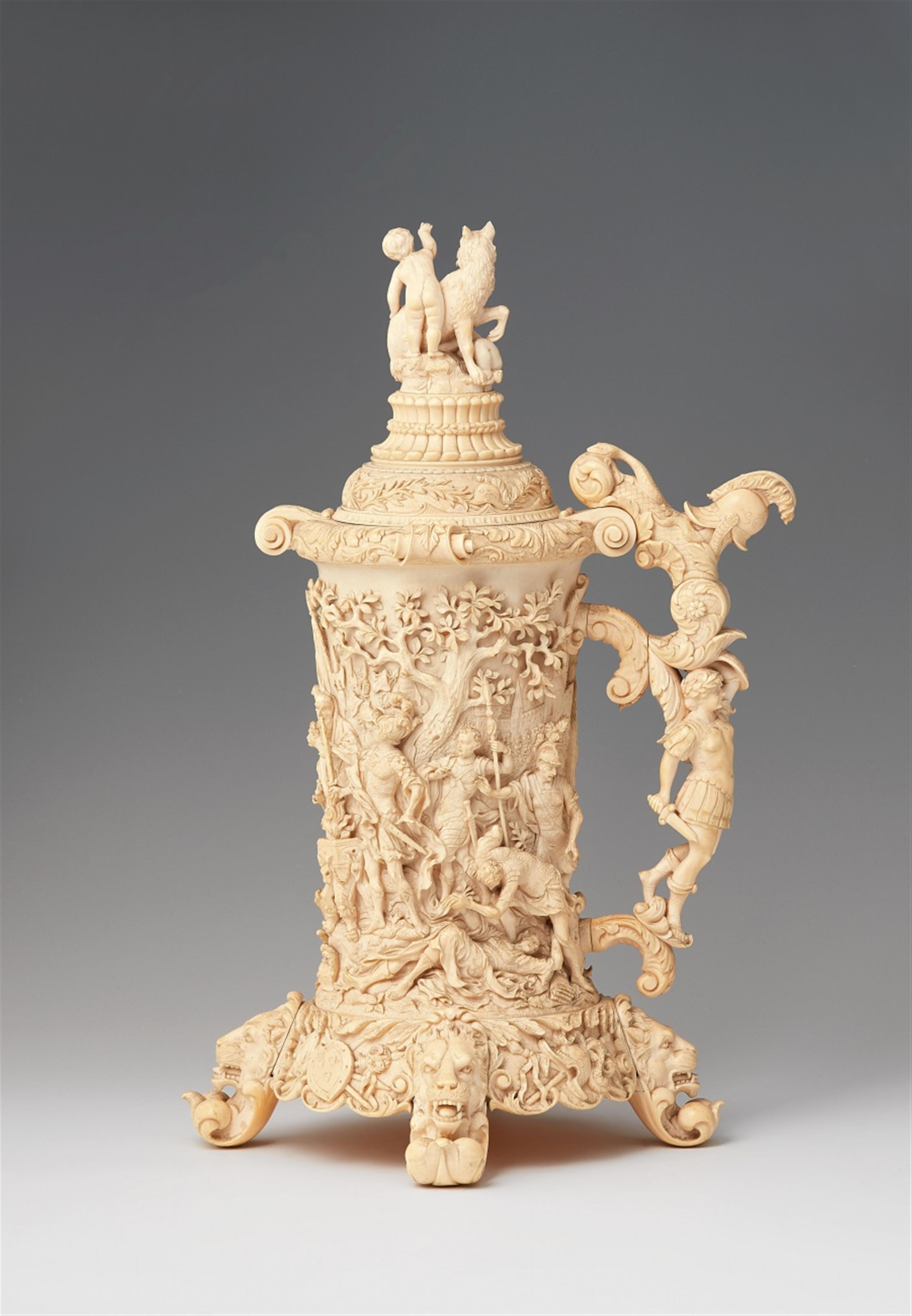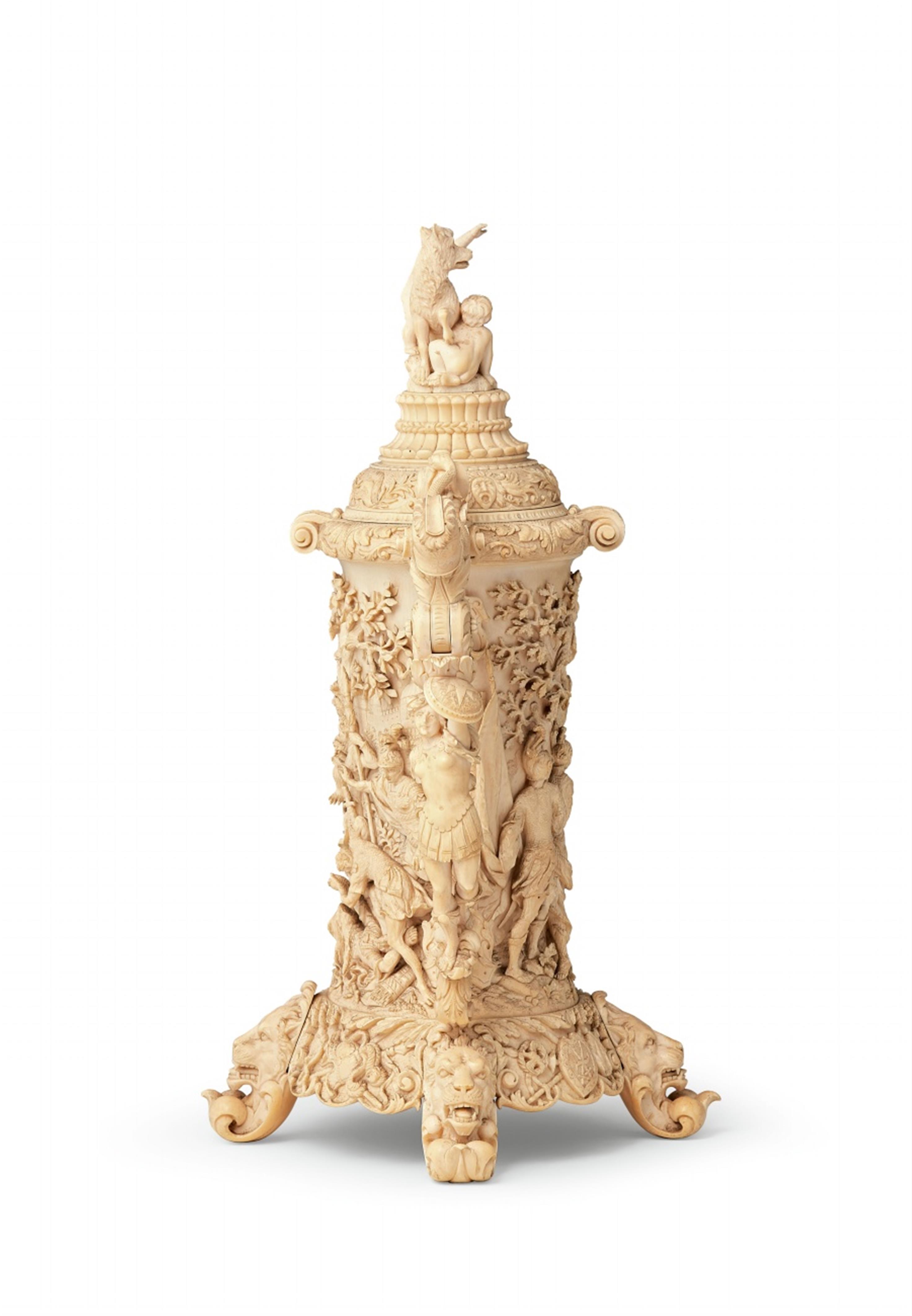An ivory tankard with a scene from Roman history
Solid ivory vessel, transluscent in the thinner parts when held up to the light. Carved with a continuous scene depicting Gaius Mucius Scaevola holding his hand over a fire before the Etruscan King Laris Porsenna. The base with trophies and supported by four rocaille feet with lion mascarons. The centre of the handle carved with a figure of Bellona beneath scrolls, a herm, and a snake. The lid with a depiction of Romulus and Remus with the wolf. Minimal breakages, one arm of the Roman twins reattached. H 49.5 cm.
Germany, probably Erbach, mid- to 2nd half 19th C.
This extraordinary vessel tests the limits of translucent ivory carving: The material is carved so thinly that some areas resemble a see-through membrane and are prone to cracks. The figures are exceptionally finely wrought, full of character and with expressive facial expressions.
The tale depicted derives from Livius, who tells how the Roman Mucius planned to assassinate the enemy King Laris Porsenna. He snuck into the Etruscan camp but killed the wrong man, who is here depicted lying at his feet. He was then captured by the Etruscans and brought before Porsenna. The King wanted to burn him at the stake as a punishment, but Mucius held his own hand over the fire, burning himself but showing no signs of pain. Upon seeing this, Porsenna not only set him free, but abandoned the siege of Rome altogether.








